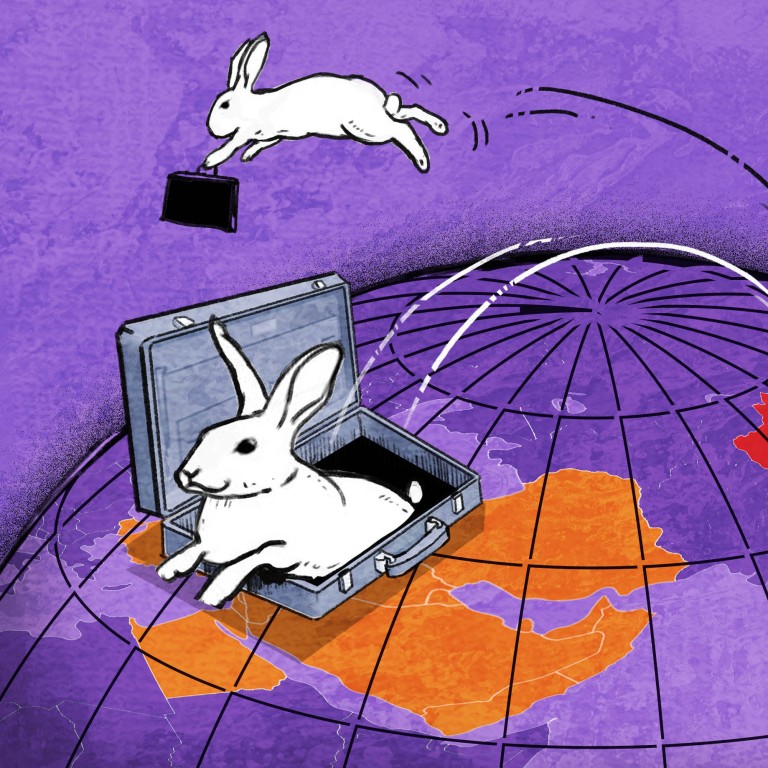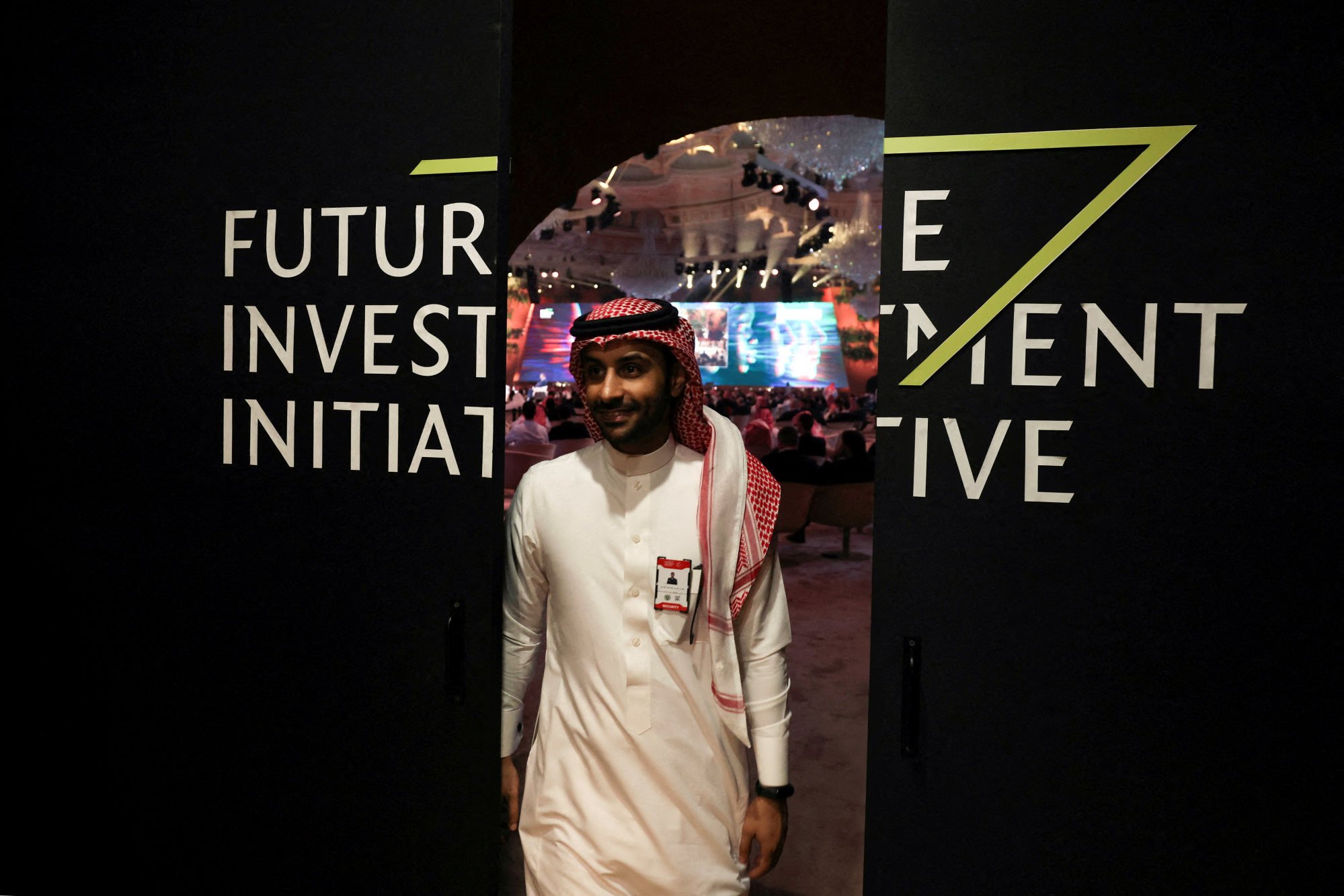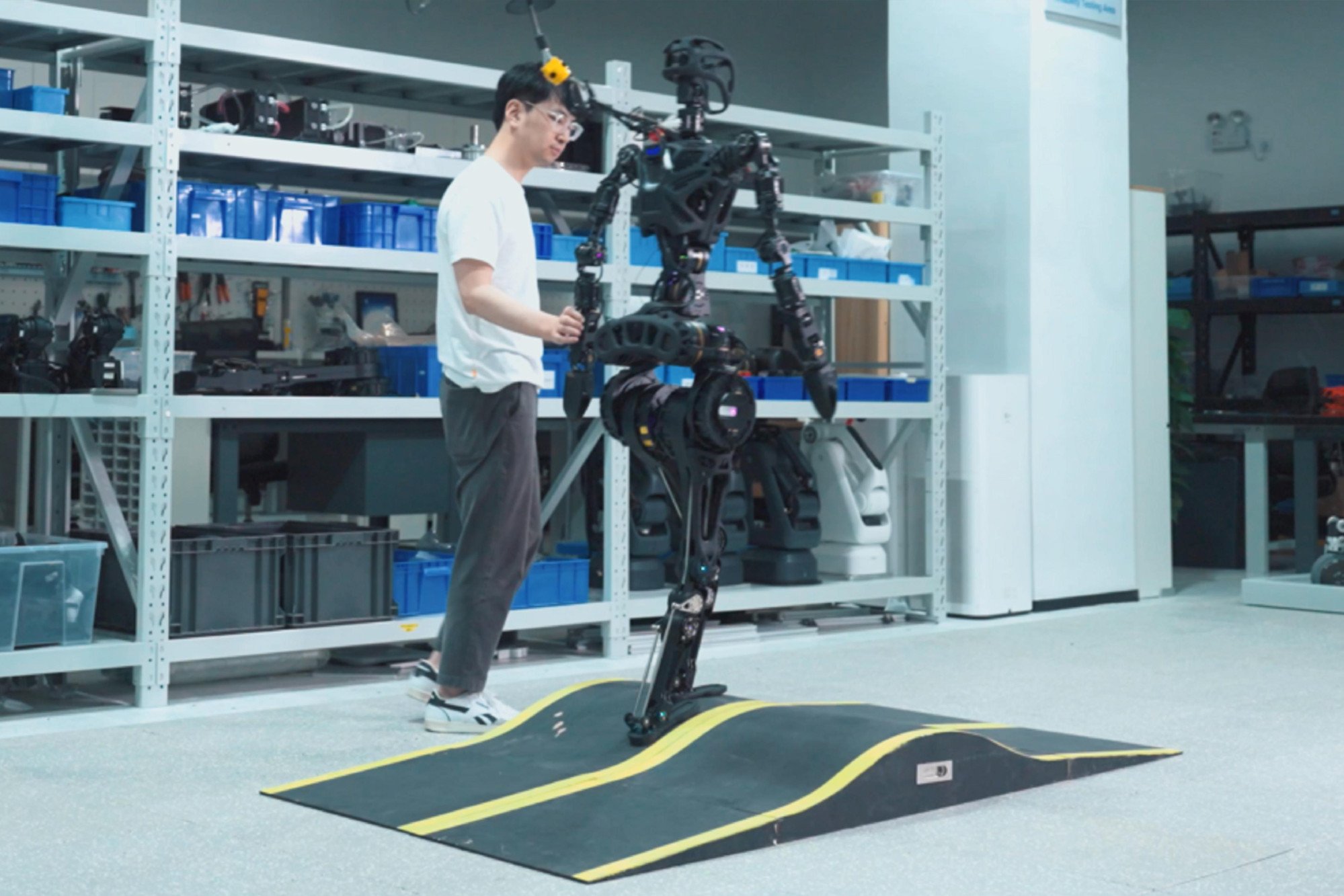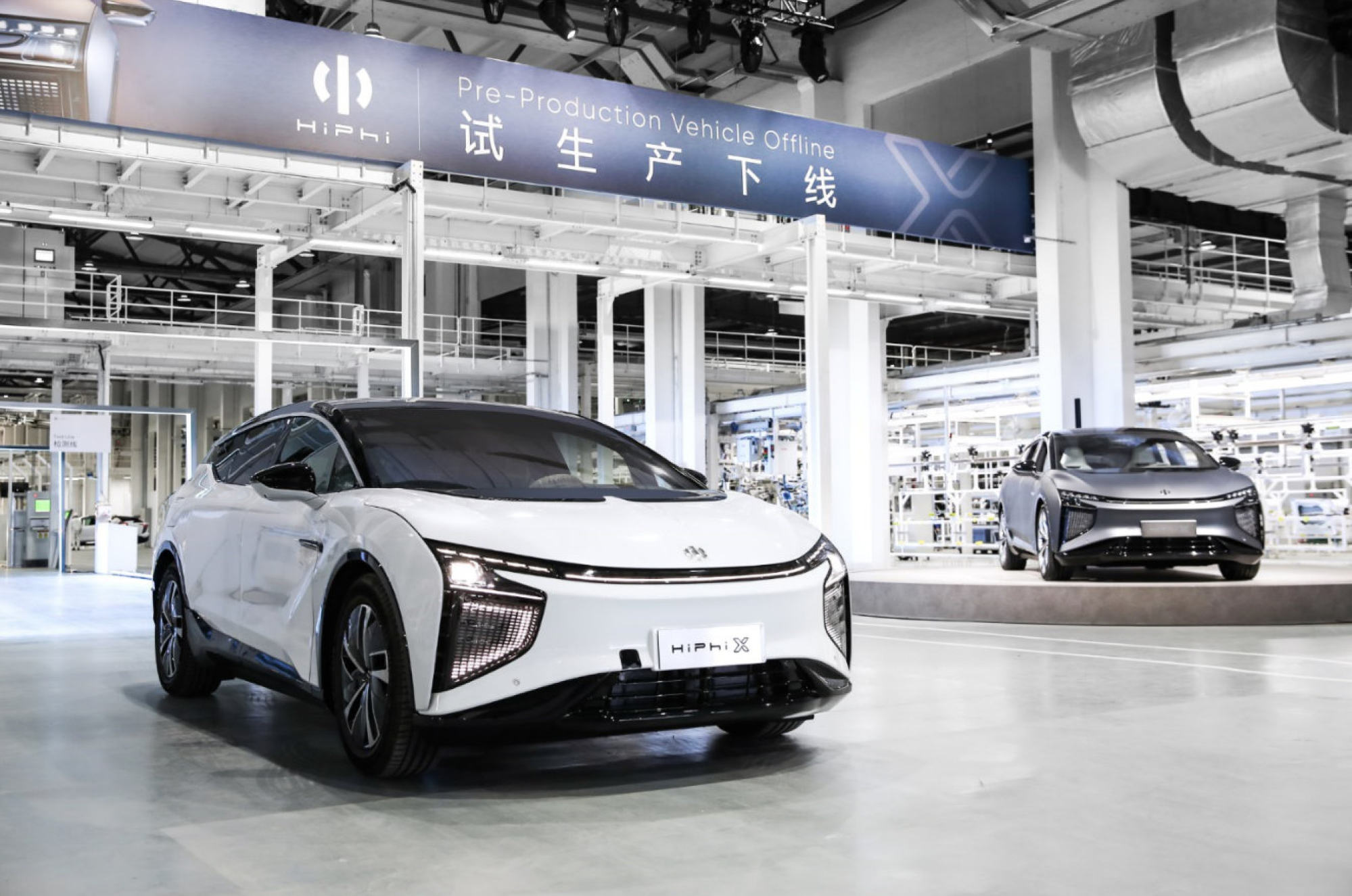
FII Priority: Ray Dalio’s ‘smart rabbit with 3 burrows’ hedge shows Chinese executives the way to navigate Middle Eastern markets
- The recent wave of Chinese companies expanding in the Middle East share a common thread: their focus on technology and innovation
- Their expansion comes at a time when several Middle Eastern countries are seeking to diversify their oil-dependent economies.
One late-October morning in one of the most expensive hotels in Saudi Arabia’s capital Riyadh, a group of Chinese start-up entrepreneurs and mainland financiers was reminded of the importance of preparedness and proactive backup plans by Ray Dalio, the founder of the world’s biggest hedge fund firm, Bridgewater Associates.
Attendees at the event networked with major Saudi executives from Aramco, the world’s largest oil company, to Public Investment Fund (PIF), the kingdom’s US$700 billion sovereign wealth fund.
Dalio’s hedging tip in Riyadh emerges when the global economy is grappling with market uncertainties and geopolitical tensions. It immediately struck a chord with the audience, evoking both applause and laughter after the humorous and appropriate use of the rabbit analogy. But on a more sombre note, Dalio’s words underscored the need for investors to diversify their portfolios given the inherent instability of the global economy, and the repercussions of the Ukraine invasion and the Israel-Gaza war.

Bill Huang Xiaoqing, the founder and CEO of Shanghai-based AI powered robot developer Dataa Robotics, was in the audience that day and said the advice was timely.
Following his first trip to Middle Eastern countries including Saudi Arabia, Qatar and the United Arab Emirates (UAE) in October, Huang has decided to pick the region as his company’s possible “new home” for his business ventures in conjunction with the United States and Europe. Huang believes his company, an eight-year-old start-up, which has developed cloud-based humanoid robots to provide services like cleaning, caring and sanitation to households, restaurants and hospitals, is up to the task.
FII picks SCMP as media partner for its inaugural Hong Kong summit
“The Middle East market is deep and vast,” said Huang, who believes the region offers ample business opportunities, drawing parallels to China’s booming era in the 1990s.
The HSBC report estimates there is an untapped trade potential of US$178 billion between China and the Middle East and North Africa (MENA) region from now until 2027.
In October, the World Bank estimated real GDP growth in the GCC would decelerate to 1 per cent in 2023, down from 7.3 per cent in 2022 due to lower oil production and falling oil prices, presenting an opportunity for the non-oil sectors to help fill the growth gap.
The conglomerate facilitates the entry of Chinese companies into the kingdom, in line with Saudi Arabia’s Vision 2030 strategy for economic transformation and for cutting the kingdom’s reliance on fossil fuels. Ajlan has since brought 12 Chinese companies, drawn from various sectors, which are focused on sustainable business models that cater to government, corporate, and individual clients.
The recent wave of investments shares a common thread: the companies involved are focused on developing products that have the potential to benefit humanity and foster a better, more sustainable way of living through technological advancements in the region, according to industry players.
Mega-deals involving manufacturing and tech projects that generate massive economic benefits and handsome profits are actively being pursued by the Saudi government, said Yan.
Yasir Al-Rumayyan, the PIF’s governor and chairman of the FII Institute, underscored the kingdom’s commitment to renewable energy to ensure a sustainable future when he spoke at the FII conference, stating that it is projected to constitute half of the country’s energy sources by 2030. In 2022, less than 1 per cent of its electricity came from wind and solar.

Fourier, which specialises in exoskeleton robotics for medical rehabilitation, has already received investments from Prosperity 7 Venture, the US$1 billion diversified investment fund of Saudi Aramco.
The fund, with its name derived from “Prosperity Well’, the seventh oil well drilled in Saudi Arabia and the first to strike oil, joined the 400 million yuan investment round in Fourier in 2022, together with global investors like Japan’s SoftBank.
“They want to invest in something that can change lives. And that is what we are doing,” Zen Koh, Global CEO of Fourier, recalled.
JPMorgan’s Dimon, Dalio addressing world’s challenges in Riyadh
Aysar Tayeb, executive managing director of Prosperity 7 Venture, explained the investment strategy when it made its second round of investment in Fourier last year.
“We hope to land Fourier’s rehabilitation solutions within the kingdom’s network of hospitals and clinics. They will also work with the company to deliver the most advanced rehabilitation services and solutions to improve recovery and the quality of life among patients in Saudi Arabia and beyond,” Tayeb said.
Another innovator, WeRide, a self-driving technology company headquartered in Guangzhou with offices in San Jose, Singapore, and Abu Dhabi, has obtained the first self-driving licence in the UAE.
This approval came after two years of rigorous testing and examination processes involving the robotaxi on the UAE roads, according to Tony Han, CEO and co-founder of WeRide.

“With the licence in hand, WeRide is now authorised to trial all of its vehicles within the country,” said Han, referring to robotaxis, robobuses, robovans and robosweepers.
Currently, WeRide operates a fleet of 10 vehicles in the UAE, consisting of eight robotaxis and two robobuses. The company plans to have hundreds of vehicles on the country’s roads by 2025, in line with its mobility strategy and its commitment to advancing technological innovation in transport.
“We hope to truly put autonomous driving into practice and reduce labour costs,” said Han.
Yan of Ajlan said it was both a quantitative and qualitative game.
“Ajlan has to make sure that the business looking to invest in Saudi Arabia will be able to create a sustainable business model there. To be precise, it needs to attract government, corporate and individual clients who are willing to pay for the products and services.”
Ajlan has also backed Autowise, a developer of autonomous road sweepers, in another instance of the benefits Chinese technology could bring to the country through the reduced need for labour and improvement of environmental conditions.

“We are the go-to for Chinese companies as they plan to localise operations in Saudi Arabia because we know both markets well and are able to help facilitate investment and save time,” said Yan.
Other Gulf nations are also seeking to diversify its oil-dependent economy through sustainable and renewable energy and tech investments, said Tang Ying Lan, CEO and founding managing partner at Insignia Ventures Partners, a Southeast Asian venture capital firm specialising in early-to-growth stage investments.
For example, Qatar’s sovereign wealth fund, the Qatar Investment Authority, is currently assessing investment prospects in China’s retail, healthcare, tech, and logistics sectors. Abdulla Al-Kuwari, head of the fund’s Qatar Investment Authority Advisory (Asia-Pacific) unit, revealed his intentions during the Caxin Summit held in Beijing in early November.

CYVN Holdings, an investment company funded by the Abu Dhabi government, in June acquired a 7 per cent stake in Nio, one of China’s leading EV manufacturers, for US$738.5 million.
Meanwhile, Chinese companies that are eyeing the Middle East are being advised to adopt global perspectives while localising their products.
Fourier’s Koh emphasised the importance of collaboration with overseas partners which possess international experience and vision, while Dataa Robotics’s Huang believes that localisation and contributing to the local economy are crucial strategies for success in the Middle East.
“Learning from the experience of foreign companies in China over the past decades can provide valuable insights for Chinese companies expanding into the Middle East,” Huang said. “By leveraging these strategies and insights, Chinese companies can position themselves for success as they expand into the Middle East.”


